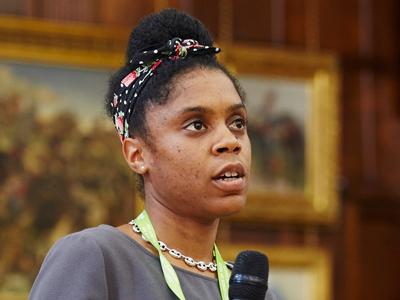Middle leadership is under-researched, but there are steps heads of department can take to make their departments run efficiently, write Sam Baars and Andy Buck
This summer, teachers around the country will be preparing to step into new roles. Many will be taking their first step into management as Heads of Department, a role that is often overlooked and which is generally under-researched. Yet as James Toop, Chief Executive of the charity Teaching Leaders argues, ‘no school can be a great school without getting middle leadership right’. So what does it mean to be a great middle leader? That’s what LKMco’s new report, commissioned by Teaching Leaders and published today, sets out to explore.
Over the course of the research it soon became clear that leadership is not just about soft skills like setting vision and purpose; management is key too. This finding will come as no surprise to teachers who have had the frustrating experience of walking into the store room, minutes before a lesson, only to find there are no board pens left. Similarly, teachers battling with badly-put-together timetables will know just how much of a difference good planning and resource management can make.

Systems and structure are key
We found that of all the priorities middle leaders listed, performance management, planning and resource management and managing data were the strongest predictors of their department’s performance. These were also the most frequently mentioned aspects of an effective middle leader’s role in the interviews we conducted. As Gill, a senior leader, explained:
“It’s okay to have the vision… but you’ve got to get people doing things that are important at the right time… planning lessons, delivering lessons within a structure… making sure that people are following behavioural systems.”
Of course, middle leaders cannot do it on their own and support from senior leaders is also key: we spoke to one middle leader who felt their efforts to implement behaviour management systems were undermined by poor practice across the school.
Team relationships matter
Strong team relationships are the second main set of factors identified in our report and as we visited different departments across the country, we began to unpick three dimensions to teamwork:
1. Being consultative and collaborative
2. Being diplomatic
3. Knowing and developing the teachers within the department.
As one middle leader explained:
“I think it’s about knowing your team members, knowing their strengths and weaknesses and being able to develop them and know who’s suitable for what task so you can get the best out of each one.”
It may seem obvious, but building strong relationships with your team really matters. Getting that engagement through effective two-way communication, managing conflict tactfully and, most importantly, by supporting colleagues to grow professionally, builds strong ‘discretionary effort’- in other words, increases people’s willingness to go ‘above and beyond’.
Maximising colleagues’ engagement with their work and their team is also essential for retention – an area in which effective middle leaders can have a big impact and which is could not be more important in the midst of a recruitment and retention crisis.
Keep your finger on the pulse
Thirdly, whilst the systems and the team are key, we also found that in high-performing departments, leaders tended to be particularly ‘professionally informed’ – always finding time to engage with policy changes and cutting-edge research. For example, Pete told us that:
“I’m very interested in the wider picture… keeping abreast of research and policy changes and just the general kind of what’s going on in education nationally at the moment and I do that through, mainly online actually through Twitter and blogs.”
Take a look in the mirror
Finally, although middle leaders may sometimes be frustrated by the constant pressure to ‘self-evaluate,’ our research showed that this is probably well worthwhile. We found that the best middle leaders spent much more time on self-evaluation than others and indeed, this was the self-reported behaviour most strongly related to a department’s performance.
All too often the leadership qualities of vision, culture and team are emphasised at the expense of management, systems and processes. But over the course of our data analysis and travels around the country we soon realised that middle leaders must be good managers as well as good leaders. Ultimately, in order to deliver their vision, middle leaders need to do the small and apparently mundane things well.
Easy access to accurate pupil performance data, clear procedures for marking and feedback, and a well-stocked resource cupboard all help free teachers up to focus on the quality of teaching and pupil progress, leaving them more willing to go the extra mile.
Dr Sam Baars is Director of Research at LKMco and Andy Buck is Dean of the Leadership Faculty at Teaching Leaders







Your thoughts